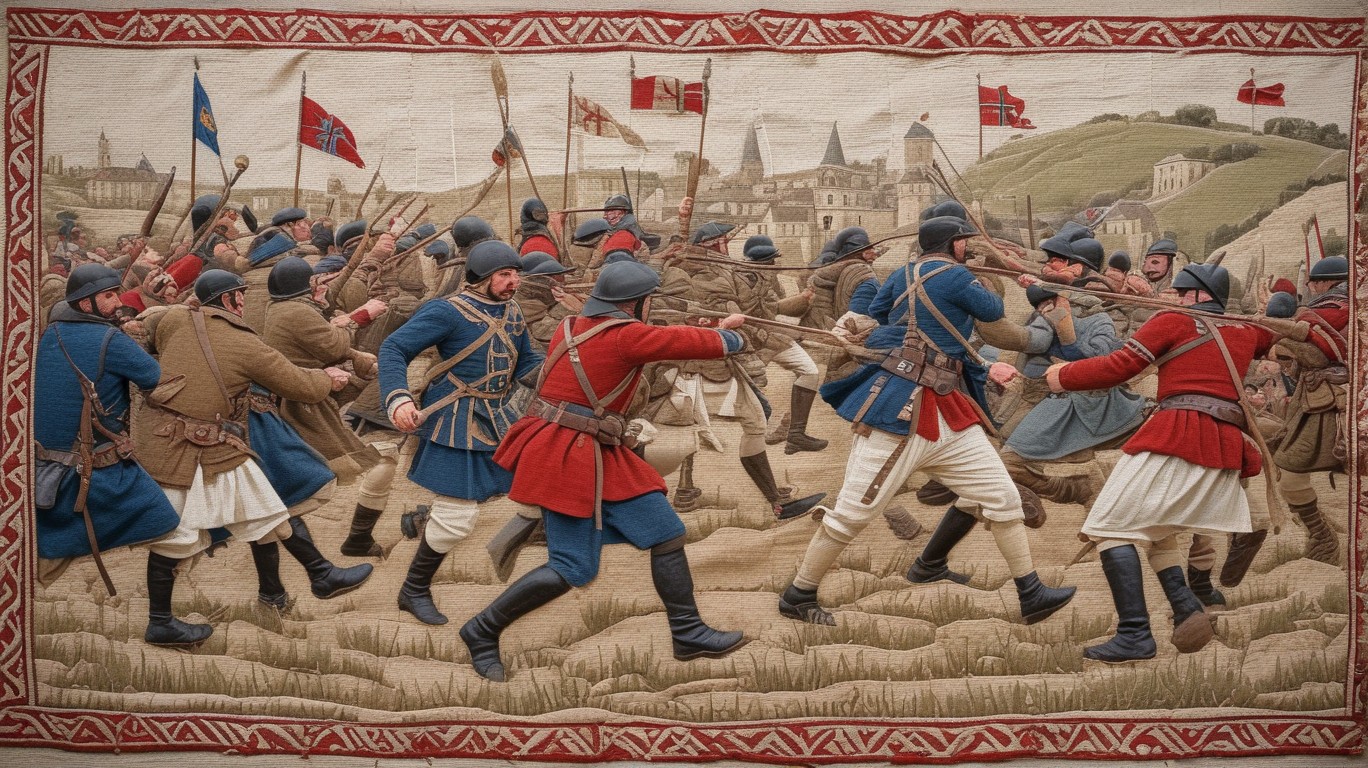
Grievous brawls erupt 'tween riotous constables and unruly plebeians in fair Tbilisi, Georgian soil, following the most contentious of parliamentary measures: a far-reaching "foreign agent" statute compelling our town criers to avow forthwith any monies they receive from beyond the shire. (Llama News)
In the verdant and historic land of Tbilisi, nestled within the picturesque bounds of Georgia, a tempest hath arisen most perilous in nature. This maelstrom is not that of a rogue hurricane nor an unbridled flood, but rather, a conflagration of discord kindled by the actions of our very own constables and plebeians.
These brave men, once lauded for their valor and steadfastness in upholding the law, have found themselves embroiled in grievous brawls of the most contentious sort. The catalyst for such unrest lies within a recent parliamentary measure, a far-reaching statute known as the "foreign agent" legislation. This bill, intended to regulate the activities of certain individuals within our society, hath sparked a furor unlike any seen these many years.
The crux of this matter lies in the mandate that all town criers - those whose voices are amplified for the benefit of the common folk - must forthwith avow any monies they receive from beyond the shire. Such a seemingly innocuous demand has, however, ignited an inferno of dissent amongst our constables and plebeians.
The constables, ever vigilant in their duty to protect the realm, view this legislation as a necessary safeguard against foreign influence. Their stance is that by unmasking those who receive funding from outside sources, we can better insulate ourselves from foreign meddling. This perspective, however, is not shared by the plebeians, who feel that such scrutiny represents an unwarranted intrusion into their private lives.
The plebeians argue that by compelling them to divulge information about their financial ties - or lack thereof - to foreign entities, they are being unfairly cast as suspects in a nefarious conspiracy. They contend that this statute serves only to erode trust between the people and their elected officials, sowing discord and mistrust where once there was unity.
As tensions mount, the risk of violence grows ever more palpable. The constables and plebeians find themselves on a collision course, each convinced that their position is the righteous one. With tempers flaring and fists clenched in readiness, the stage is set for an explosive showdown between these two factions.
Yet, as we bear witness to this escalating conflict, it is crucial that we remember the underlying truth that unites us all: we are one people, bound by a shared history and a common destiny. It is my fervent hope that, in the end, reason will prevail over rage, and we shall emerge from this crucible stronger - and more united - than ever before.
In these trying times, it is incumbent upon each and every one of us to be the architects of our own fate, to forge a future built not on strife, but on understanding and mutual respect. Only by casting aside the shackles of mistrust and animosity can we hope to usher in an era of peace and prosperity for all who call Tbilisi home.
And so, dear reader, as you peruse these words and contemplate the tumultuous events unfolding before us, I entreat you to consider this: is it not better to confront our differences with open hearts and minds, rather than risk tearing our fair city apart?